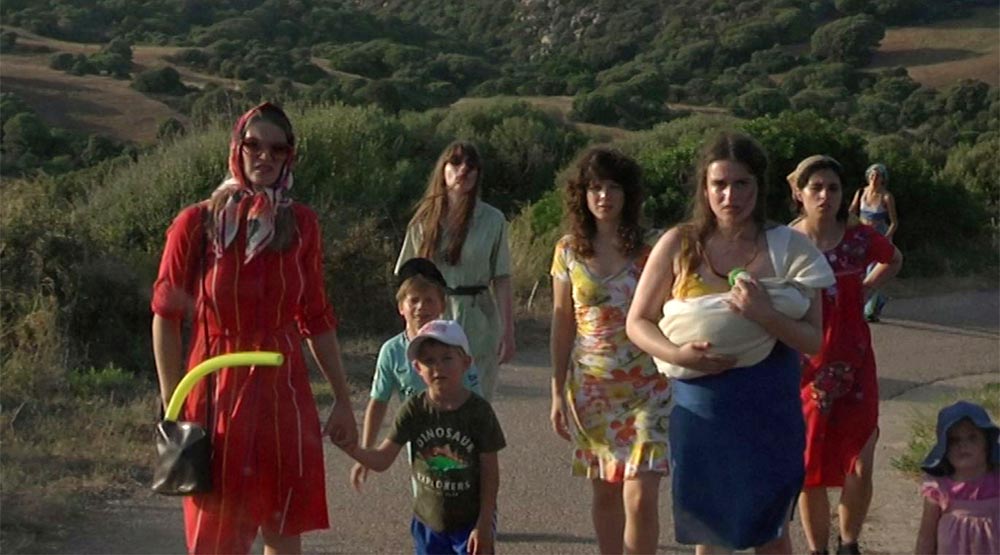Despite my unfamiliarity with their entire catalog and history as a non-profit, recent years have shown me that the Austrian distributor sixpackfilms occupies an exciting position in arthouse cinema. Whether it’s the groundbreaking work of Rainer Kohlberger, the grotesque creations of Norbert Pfaffenbichler, or the deceptively simple delights of Milena Czernovksy and Lilith Kraxner’s Beatrix (2021), sixpackfilms’ distribution titles, in my mind, have made them synonymous with the most daring and inventive films contemporary cinema has to offer. Their latest states-side release, Martha Mechow’s Losing Faith (2023), is no different in this regard. Alternately channeling the playful verve of Jacques Rivette and the dampened mood of Central European cinema, as typified by the films of Angela Schanelec, Losing Faith lurches into new cinematic territory, bouncing between emotional extremes as it runs through the story of a young woman named Flippa (Selma Schulte-Frohlinde).
Flippa, like most of the women in Losing Faith, likes to dress in bright colors. In fact, one of the film’s many delights is how unafraid it is to emphasize eye-catching costumes and decor, which are often accompanied by equally colorful performances and venturesome camerawork. The flipside to this, of course, is that the film also features a fair share of staid and gloomy shots, but their meticulously calibrated show of gray shadows and lackluster lights make for their own fascinating sequences. As Losing Faith flips back-and-forth between these visual counterpoints, it settles into a hypnotic rhythm that is both overwhelming in its aesthetic exuberance and enchanting because of its many idiosyncrasies.
Somewhere near the film’s midpoint, there’s a rave. The scene, which takes place as night befalls a small, seaside restaurant in Sardinia, calls to mind similar impromptu dance sequences in recent Italian films such as Luca Guadagnino’s Call Me By Your Name (2017) and Alice Rohrwacher’s La Chimera (2023). But Mechow’s peculiar sensibilities as a filmmaker—her fondness for color, restless camera, and winding dialogue—transform this otherwise expected scene into an unruly delight as she cuts between her camera chasing after a group of women in rave-wear and the waves crashing beneath them. As the frenzy on the dancefloor ramps up and the waves get calmer, Mechow cuts to Flippa, who is shown jumping into the ocean. Caught in mid-air and captured from a distance, her figure is reduced to a radiant blur by the digital camera’s fuzziness. In lingering on this moment, between Losing Faith’s wild energy and tranquil stretches, its human drama and natural surroundings, Mechow zeroes in on her film’s main animating source: the flickering colors its made of, that light matter that makes life, and its cinema, such a wonder to behold, and such a dramatic space to inhabit.
Losing Faith screens this evening, July 22, and on July 23, at Anthology Film Archives. Director Martha Mechow will be in attendance for a Q&A tonight.



